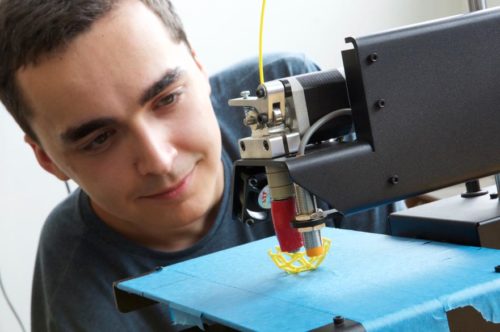Why study electronic engineering?
Imagine a world without electricity or electronic devices. It’s easy to see why engineering is vital to our survival and the development of future technologies. Electronic engineers play a vital role in the design, development, distribution and recycling of numerous everyday products.
Engineering is where change begins – it’s about asking questions, pushing boundaries, and leading innovation. If that sounds like you, then you’re already thinking like an engineer. Discover how engineering will challenge you and change the way you learn.
Why UWE Bristol?
Our new inclusive, problem-based curriculum will broaden our engineering audience, enabling students from a wider range of backgrounds to pursue a career in engineering. To date, we’re the first university in the UK to transform our curriculum alongside constructing a new engineering building.
You’ll be taught in our new state-of-the-art School of Engineering designed to revolutionise the way engineering is taught. Featuring engine test cells, dedicated collaborative learning spaces and the latest high-tech equipment, it’s purpose-built to support a wide range of engineering disciplines.
On this course, you’ll tackle real world issues through live projects, and learn to take risks as you develop solutions in our state-of-the art labs. You’ll develop core skills in digital and analogue electronics, mathematics and computer programming too.
Where can it take me?
As a student engineer, you’ll start your professional journey towards becoming an incorporated or chartered engineer from day one. You’ll learn by doing, applying and revisiting your early skills through embedded project weeks and development of digital and physical prototypes, just as you would in practice.
Choose a career designing electrical and electronic systems, working on consumer technology or solving engineering problems for communications and power generation/distribution companies. You could also work in technology, manufacturing, transport and rail, aviation and a host of other industries.
Zobacz więcej na stronie uniwersytetu >>




















